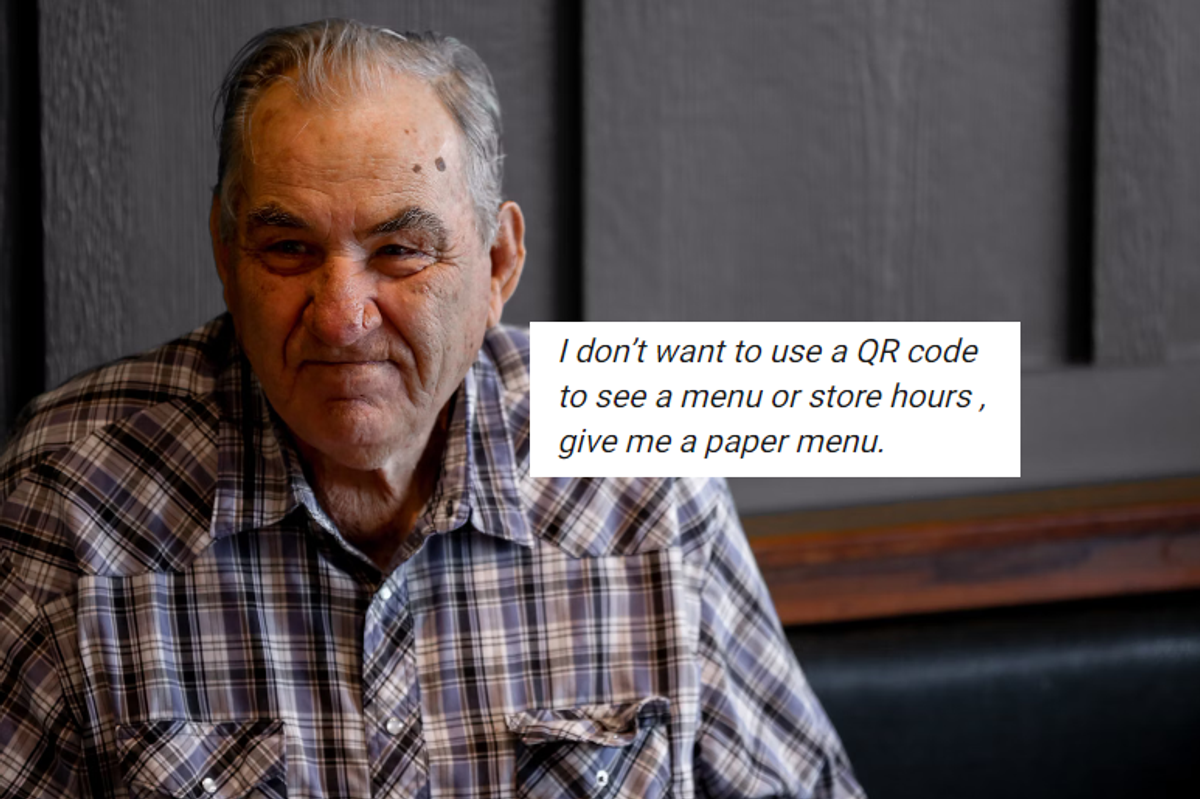Do you know what trigger warnings are? These 5 insightful illustrations explain.
Trigger warnings help us gain control over our emotional reactions.
You know the feeling when you're going about your day and you're suddenly struck with a deep pang of emotion?
Something you saw, heard, or witnessed subconsciously took you back to a traumatic event you experienced. That's a trigger.
For some people, these triggers can bring about unpleasant or even harmful emotions.
That's why it's important to be aware of how discussing certain issues might not just affect us, but also those around us.
Cartoonist and illustrator Madeleine Slade created this incredibly insightful comic detailing what trigger warnings are based on her personal experience. Not only is it brave, it's also important to understanding and being mindful of others sensitivities.
These comics explain how trigger warnings can help someone avoid a personal, emotional crisis:
Illustrations by M. Slade, featured with permission.
Illustrations by M. Slade, featured with permission.
Illustrations by M. Slade, featured with permission.
Illustrations by M. Slade, featured with permission.
Illustrations by M. Slade, featured with permission.
The 2016 presidential election will be triggering for people you know and love and maybe even for you personally.
If you're emotionally invested and can't control your feelings while talking politics, know you can leave the conversation before it turns into something damaging.
Stepping away can save you the anxiety of not knowing what to do because you're uncomfortable with the situation. Removing yourself from those triggering talks will help you remain focused, relaxed, and — most importantly — healthy.
An NPR survey recently found half of college professors have used trigger warnings before. The National Coalition Against Censorship explains that "in many cases, the request for trigger warnings comes from students themselves." They help students feel that they're in a safe space.
Whether you feel you need trigger warnings or not, it's important to understand what they are.
They're a way we can better understand each other. They help establish awareness of others and their emotions while discussing sensitive subjects. Trigger warnings are act of empathy.
Give your friends a heads up if you need trigger warnings, too. Kindly remind them how they help you stay healthy.
We can't control the things around us, but we can control our reactions to them. And that is always worth discussing.






 A woman is getting angry at her coworker.via
A woman is getting angry at her coworker.via  A man with tape over his mouth.via
A man with tape over his mouth.via  A husband is angry with his wife. via
A husband is angry with his wife. via 
 Some Boomer grandparents are being called out for "gramnesia".
Some Boomer grandparents are being called out for "gramnesia".

 A woman gets a tattoo.
A woman gets a tattoo. Boy playing on the computer.
Boy playing on the computer.
 Grumpy boomers aren't wrong about everything. Photo by
Grumpy boomers aren't wrong about everything. Photo by  Even the young people can't stand QR codes. Photo by
Even the young people can't stand QR codes. Photo by  Everything, even fast food, has gotten out of control expensive. Photo by
Everything, even fast food, has gotten out of control expensive. Photo by